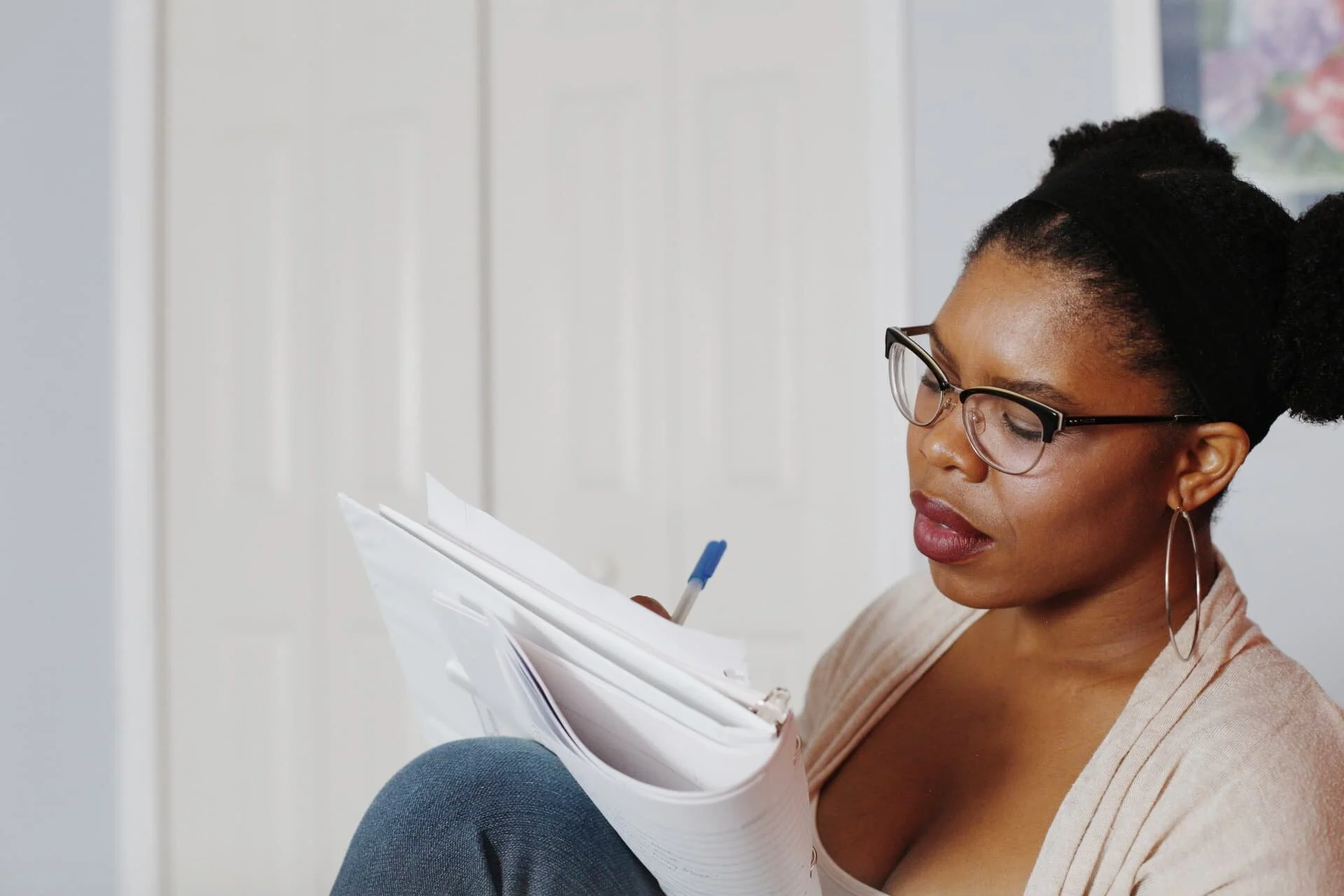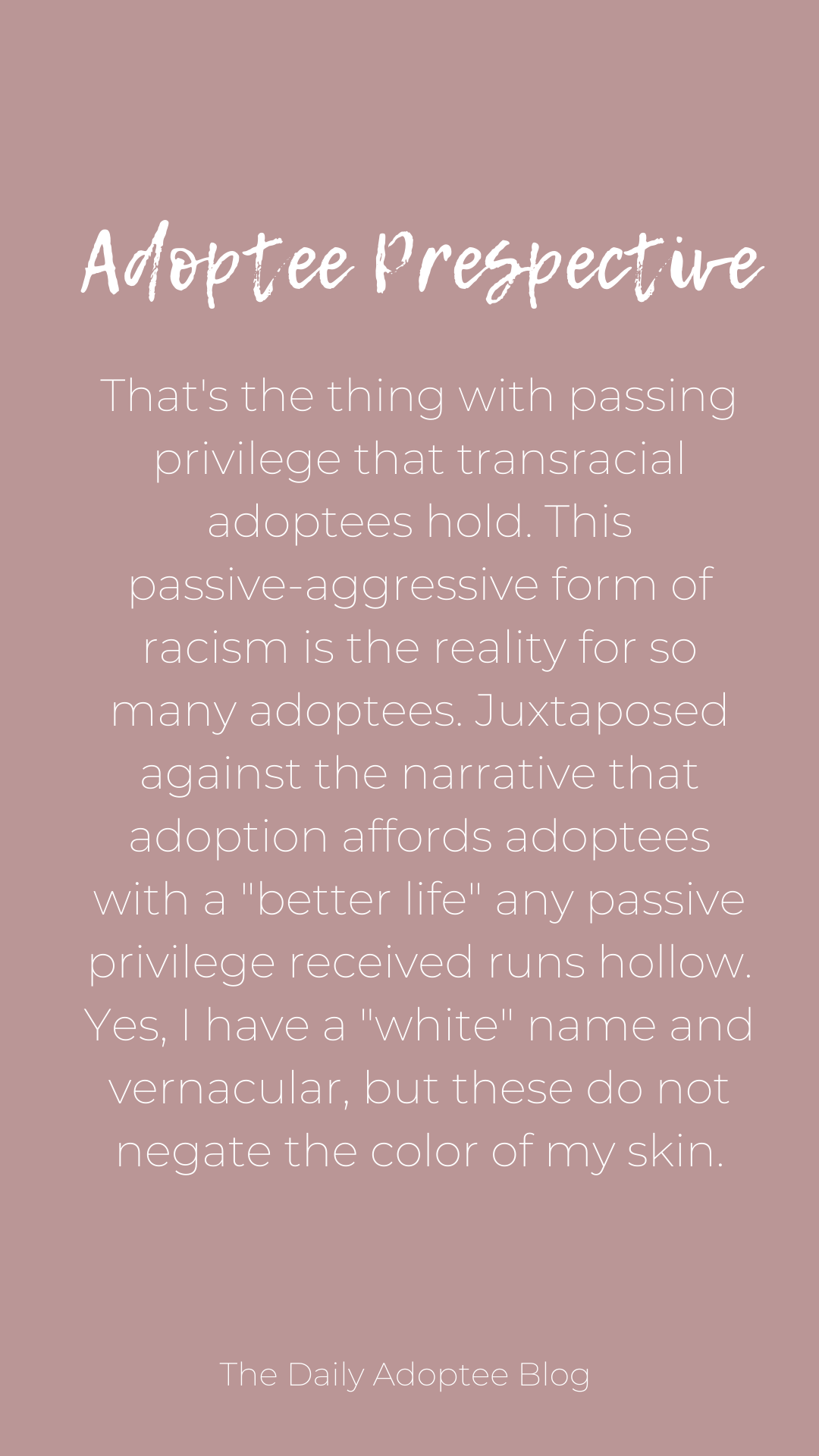Adoption & Passing Privilege | Musings of a Black Female Adoptee
My name is Brittany Nash. It's a passing white name. It's not questioned on resumes or when someone picks up the phone to call me. Because I wasn't raised with AAVE my voice passes as white. But I've watched how people's approach changes when they discover I'm a black woman.
This is just one lesson on how assumptions and racism come into play for me as an adoptee.
I have mentioned before in my other writings that adoptive parents need to be keenly aware that their adopted children of culture’s adoption does not precede them (Safe Spaces Are Necessary), but transracial adoptees we need to be very aware of the "privileges" we have because we are adopted.
Whoa. Right?
This may be a hard topic to discuss. We are in a time in the US that the complexity of racism and discrimination is so nuanced that we HAVE to have these discussions. Not only is it a way to explore our identities, but also as a way to protect ourselves. We are black and brown kids who need safes spaces, that now need to navigate the adult world.
It wasn't until college I was clued in to how much this would matter. But I found myself learning how to code-switch to AAVE (African American Vernacular English) weeks into starting my college career. I went to a small religious liberal arts college that was predominately white…except for the men and women's basketball teams. My initiation into my own culture was brutal and I was viewed as suspicious because my tongue didn't know how to drop the r's and t's and th's and my mind stumbled at translating 'finna' into "I/they am/are going to" or better put: we were all about to do something/say something etc.
I was at a disadvantage in fitting in, but my formal "talks like a white girl" vernacular was a warning sign to them that I couldn’t be trusted and I didn't know 'how' to be black.
But it gets better.
This same proper language would have my county's state representative asking me if I aspired to be a politician because I was "so well-spoken and articulate" when I was at the state capitol advocating for the funding of private liberal arts colleges.
And thus I really started understanding the "passing privilege" that adoption had given me.
To be frank I didn't like it. Yet again my feet were always running back and forth to two worlds neither totally accepting who I was, but both wanting me to play by their rules to assimilate into someone they were comfortable being around.
But what neither "side" understood was the privilege was just that: passing. Fleeting even.
After college, my resume would get me interviews, but the melanin in my skin would change minds. I still can remember the look of unease on one local newspaper editor's face when I was the Brittany Nash that showed up for an interview. My experience of being the co-editor of my campus's newspaper for three and a half years was on par for the entry-level journalist. Heck, I could even throw in writing, layout editing, and being a photojournalist. I was qualified and competent and impressive. He even said so himself, but at the end of my interview, I was told I was "overqualified" for the job.
Overqualified to be an entry-level journalist of a small publication out of a town that today has a population of less than 2,500 people. 10 years ago the population was about the same. Interview after interview led to these same rejections. "You're great but overqualified."
That's the thing with passing privilege that transracial adoptees hold. This passive-aggressive form of racism is the reality for so many adoptees. Juxtaposed against the narrative that adoption affords adoptees with a "better life" any passive privilege received runs hollow. Yes, I have a "white" name and vernacular, but these do not negate the color of my skin.
This is why I’m not surprised many transracial adoptees find themselves doing racial justice and advocacy work. If not that, many of us are doing the work of educating adoptive parents (and those considering adoption) and now even educating black and brown communities about transracial adoption and the effect it has on black and brown adoptees. Many of us are still seen as foreigners in our racial and cultural communities. Just because we hold a different experience of how we were raised doesn’t mean we aren’t black or brown and don’t experience discrimination and racism.
A very common response I get from black and brown people who were raised in black and brown spaces is that "they never knew." One particular reader said that because black adoptees are raised in all-white families that he thought they would be "all good", because well, they were with white people. It never really crossed his mind that they would still be racist. And this is where we find the crux of the transracial adoptee's experience.
Whiteness is good but suspicious and our racial identity will never be stronger than the racist rhetoric that has been at work for centuries.



